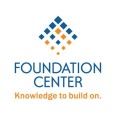History
After a civil war in the mid-20th century, Colombia experienced more than fifty years of violence at the hands of the Revolutionary Armed Forces of Colombia (FARC), an “irregular military organization” that is still active in certain rural areas of the country. The country also has had to deal with violence perpetrated by drug cartels that help drive the global cocaine industry. “Violence, corruption, guerrillas, paramilitary groups, drug cartels — all are present in Colombia and have definitely affected the different sectors of the economy, including the philanthropic sector,” says Sra. Suarez. “At the moment, the country is engaged in a peace-building process in which we all have to be prepared to accept many changes. Nonprofits are not immune to this, and, indeed, they have an important role to play in a post-conflict situation.”
The problems in rural areas are a big challenge for those engaged in philanthropic work, Suarez notes, particularly as the government is trying to negotiate a peace settlement with the FARC and civil society in the country remains focused on the process. Peace-building in rural areas is important to many AFE members, and they, almost uniquely in Colombia, have the human and social capital, knowledge, and capacity to empower and strengthen rural communities. As Suarez notes, “These challenges confirm that we must go into territories beyond where the foundation’s family is from or where the foundation’s parent corporation is located.”
ChallengesColombia’s history has contributed to the challenges confronting its philanthropic sector. Decades of political corruption have eroded the public’s trust in foundations, which are often viewed as having been created by their wealthy founders to avoid taxes and are frequently suspected of taking advantage of legal loopholes to secure favorable contracts and other kinds of agreements with government entities. To overcome those suspicions, the country’s philanthropic sector is faced with the exceptional challenge of embracing and demonstrating real transparency and accountability. To that end, AFE is working to make the funding initiatives of its member foundations available to the public and share transparency and accountability best practices with its members and other social sector organizations. At the same time, as Suarez notes, many organizations in the sector are attempting to institutionalize and professionalize their operations, and that, she adds, “implies big changes in terms of the culture of the boards of some nonprofits.”Opportunities
As the social sector in Colombia continues to mature and becomes more professional and transparent, many organizations also are seizing the moment to form alliances with peer organizations and with private and governmental entities. The Colombian government increasingly is involving nonprofits and foundations in exchanges of knowledge to benefit the social sector, and is doing more to foster public and private partnerships. “Today there is a greater willingness in the public sector to work with the private social sector, represented by corporate and family foundations, and vice versa,” Suarez explains. “This is reflected in the increasing number of partnerships, especially at the national level and in large cities. Partnerships are not a new phenomenon in Colombia,” she adds, “but in recent years they have become a widespread strategy.”
Other emerging trends include increases in corporate volunteering programs, foundation giving for educational endeavors, and an increase in the number of foundations that are interested in operating their own programs directly.
Clearly, this is a pivotal moment for the philanthropic sector in Colombia, and we look forward to following events as they unfold. Suarez herself recently had more to say on the subject in a post on Philanthropy in Focus, the blog of Foundation Center partner WINGS. AFE’s website also is a good resource for those eager to learn more about organized philanthropy in the country.
Marie DeAeth is Liaison for the Americas in the International Data Relations department at Foundation Center. Her conversation with Maria Carolina Suarez Visbal is part of a new blog series that engages executives, leaders, and country experts on philanthropy and the social sector from around the globe.






Comments (0)